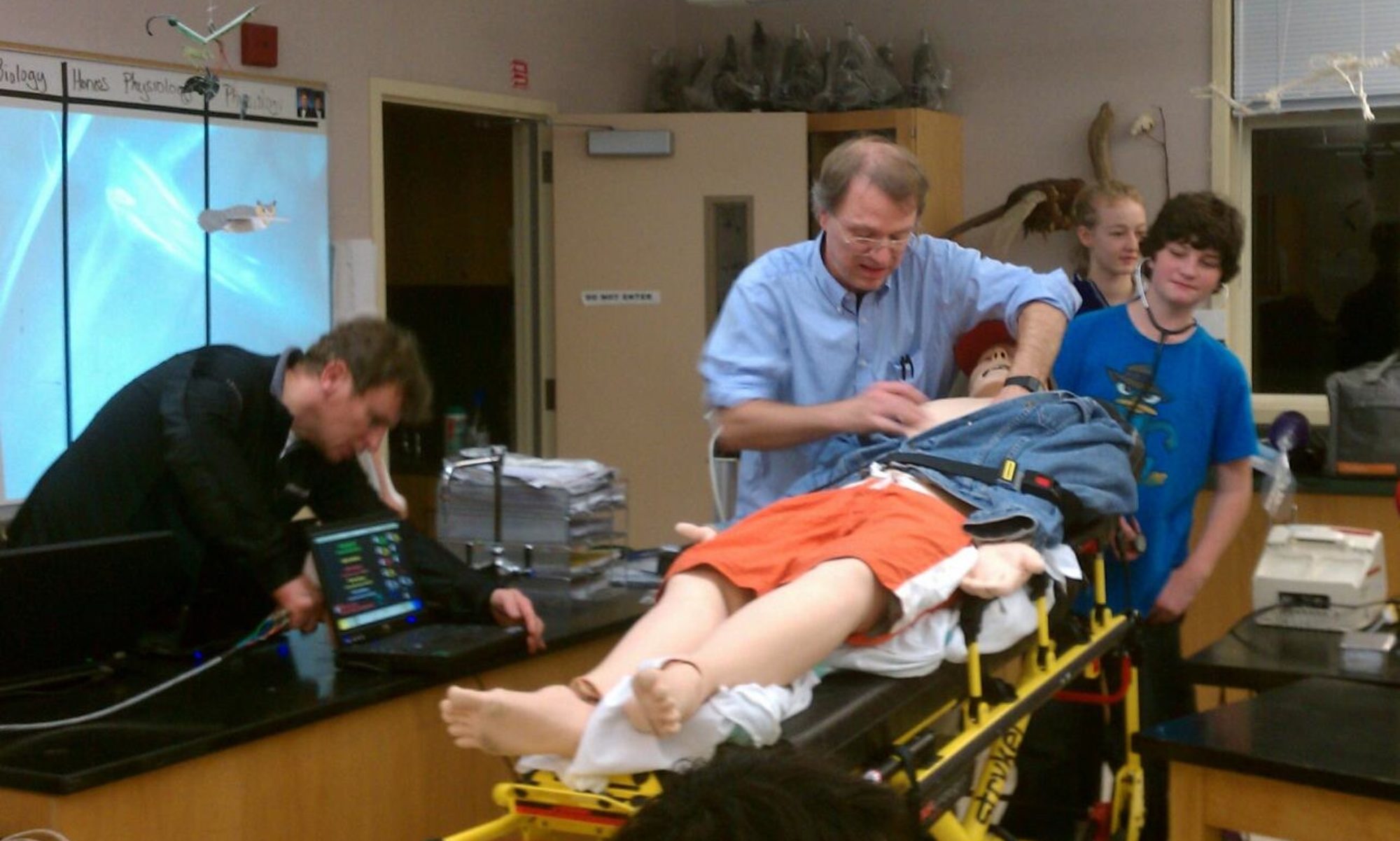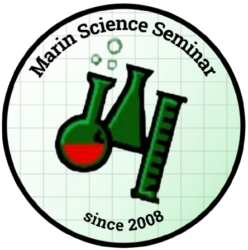“Making Faces: Developmental Mechanisms of Craniofacial Evolution“
with Rich Schneider, Ph.D.
October 28, 2009
Dr. Schneider will overview experiments in his laboratory that have revealed molecular and cellular processes involved in facial patterning. He will describe how his studies to understand the basis for skull shape in breeds of dogs led him to create a cell transplant system whereby duck embryos develop with quail beaks. He will bring an assortment of skulls.
Dr. Schneider is on the faculty of the Department of Orthopaedic Surgery at UCSF, and in 2004 he was made Director of the Department’s Molecular & Cell Biology Laboratory on the Parnassus Heights campus.
“Stimulating the Brain with Electricity and Stem Cells”
“Stimulating the Brain with Electricity and Stem Cells”
with Daniel Lim MD PhD
October 21, 2009
Dr. Lim will discuss Neurosurgery for Parkinson’s Disease and other Tremor Disorders, treatments for such disorders ranging from Deep Brain Stimulation (delivery of electrical currents), and the future of stem cell based therapies of such disorders.
Bad Blood: Interrogating Signaling Networks in Blood Disease
Wed. October 14, 2009
Bad Blood: Interrogating Signaling Networks in Blood Disease
with Michelle Hermiston, M.D. Ph.D.
Dr. Hermiston will talk about her training and experience as a physician and research speacialist in the field of pediatric hematology and oncology.
Smashing Protons!
 “Smashing Protons!: Exploring Nature’s Fundamental Particles and Forces with the Large Hadron Collider” with Beate Heinemann, Assistant Professor of Physics, UC-Berkeley
“Smashing Protons!: Exploring Nature’s Fundamental Particles and Forces with the Large Hadron Collider” with Beate Heinemann, Assistant Professor of Physics, UC-Berkeley
(September 30, 2009)
Dr. Heinemann’s experiment recently became famous when it was featured in the blockbuster movie “Angels & Demons” with Tom Hanks. She will discuss particle physics and her work with the Large Hadron Collider in Switzerland.
“The field of “particle physics” tries to understand the physics of the most fundamental building blocks of matter. How many such building blocks are there? How do they relate to each other? Why are they there? Currently we do not have a good theory why we have any mass at all, even though of course we know that all matter has a mass. There are, however, many theories about why this might be and the goal of my experiment is to prove or disprove them, or to maybe find completely unexpected phenomena that will then need to be explained. One exciting possibility is that we find extra dimensions of space that could even result in the production of mini-blackholes. My experiment is called ATLAS and is situated at the “Large Hadron Collider” (abbreviated as LHC) that is located in Switzerland. There are more than 2000 physicists on my experiment, and many engineers and technicians: all of them collaborate with each other to answer some of the most basic and fundamental questions of Science today. In my talk I will describe how this experiment works and what we hope to discover there.”
Detecting Illicit Nuclear Material with Edward Morse, PhD
Join us for the kick-off to the Marin Science Seminar Fall 2009 season!
Detecting Illicit Nuclear Material with Professor Edward Morse
Wednesday, September 23rd, 2009, 7:30 – 8:30 pm
Terra Linda High School, San Rafael, Room 207
Detecting nuclear material at ports of entry into the United States and at other locations is a daunting problem but is an essential element of a counterterrorism strategy for the country. A major difficulty in detection is the minimization of false-positive signals from a wide variety of cargo containing NORM, or naturally occurring radioactive material. One technique which looks promising is the use of nuclear resonance fluorescence (NRF) for detecting special nuclear material such as U-235. We have embarked on a five year program at UC Berkeley, called DoNuTS (Domestic Nuclear Threat Security), which looks at various aspects of the th reat detection problem. This program will be discussed, with emphasis on the physics and technology of NRF as well as other aspects including materials science, computer machine vision, sensor networks, and basic nuclear physics research.
reat detection problem. This program will be discussed, with emphasis on the physics and technology of NRF as well as other aspects including materials science, computer machine vision, sensor networks, and basic nuclear physics research.
Prof. Edward Morse is a professor of Nuclear Engineering at UC-Berkeley and has a thirty-year involvement in teaching and research at Berkeley in the areas of applied physics, nuclear technology, electronics, and mathematics.
Fall 2009 Schedule now available
The Fall 2009 Marin Science Seminar schedule is now online at http://www.marinscienceseminar.com/calendar.html
Lots of fascinating talks! Join us!
Food for Thought
Aug. 10, 2009 – Field trip to Atlas Cafe “Down to a Science” Science Cafe
From the Down to a Science website. Join us! You can RSVP at the Facebook event page here or by sending me an email at marinscienceseminar@gmail.com.
When: Monday, August 10th 7-9 PM
What: Confessions of an Alien Hunter
Where: Atlas Cafe, 3049 20th St @ Alabama St. in the Mission District
Who: Seth Shostak, Senior Astronomer, SETI Institute, Renowned Alien Hunter
The Deets:
Why do we think aliens are out there? Is Earth really being visited? Will aliens really be short, gray, and hairless? What happens if we pick up a signal from another world?
These are just a few of the questions this month’s guest, Seth Shostak, tackles regularly in his role as the senior astronomer for the SETI (Search for Extra-Terrestrial Intelligence) Institute. Shostak will also discuss the beginnings of life on earth, how this knowledge impacts what astronomers search for in other galaxies, and the growing consortium of scientific voices who believe “it would be offensively self-centered to imagine that what has happened on Earth has only happened on Earth.”
Before Egg and Sperm: Stem Cells of the Germline
Although we do not need our gametes for 20 or 30 years, they are established during early development in the womb by stem cell precursors. Professor Laird’s research in mouse embryos asks how these cells acquire and maintain their identity, migrate to the forming ovaries or testes, and avoid becoming cancerous on their way to differentiating as egg or sperm.
NanoHigh: One Session Left
You may have noticed the NanoHigh flyer in the science classroom we have our seminars in. Nanohigh is a series of lectures given by UC Berkeley professors about nanotechnology. The last one, which I attended, discussed the use of carbon. I learned about why there are 2 forms of carbon, the use of nanotubes, the world’s smallest motor, and graphene, the revolutionary material formed when you write with a pencil.
The next talk is about getting things from the lab to the market, and is on April 25, Stanley Hall, 10 AM. Registration is requested, click on the above link for the site






